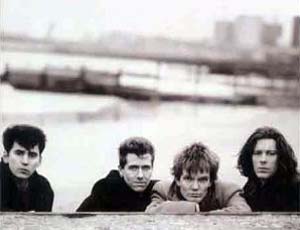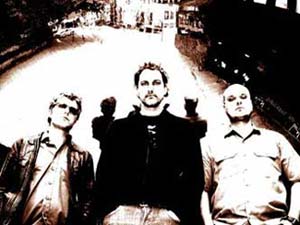Saturday, December 11th, 2004
Don't Look Back
 Bob Dylan has always been an enigma to me. I only recently really got into his work, and what with his notorious reticence with the media, his work has been the only insight I’ve had into the man. In fact, last weekend’s 60 Minutes interview was the first time I’d ever heard his speaking voice. That’s why reading his Chronicles was such a revelation – it was pretty much my first look at the man behind the music, if I may use such a hackneyed phrase.
Bob Dylan has always been an enigma to me. I only recently really got into his work, and what with his notorious reticence with the media, his work has been the only insight I’ve had into the man. In fact, last weekend’s 60 Minutes interview was the first time I’d ever heard his speaking voice. That’s why reading his Chronicles was such a revelation – it was pretty much my first look at the man behind the music, if I may use such a hackneyed phrase.
Split into five sections, the first two chapters of the memoirs start off in New York City, circa 1961. Dylan has just arrived from Minnesota and is starting to make a name for himself in the folk clubs around Greenwich Village. It then jumps ahead to the late 60s as he tries to escape his fame by moving out to Woodstock, and details his attempts to alienate his followers by making as many self-destructive career moves as possible – to almost no avail. The fourth part recounts the troubled and often frustrating first steps of his late-era creative rebirth, starting with the making of Oh Mercy with Daniel Lanois. He admits he was spent as an artist and was considering hanging it up but eventually realized he still had more left in him, though the process of extracting it and rekindling his creative spark took its toll. Finally, he comes full circle in recalling his discovery of folk hero Woody Guthrie as a young man in Minnesota in the late 1950s, ultimately leading him to New York and to sign with Columbia Records.
Dylan possesses remarkable powers of recall – he paints scenes from forty years past with such detail that you feel like you’re in the room with him. His writing style is unmistakably him – this is no dry, ghost-written piece, it’s pure Dylan in tone, phrasing and style. The only thing that’s not typical is its openness – the memoirs are amazingly frank. He seems perfectly willing, maybe even eager, to de-mythologize himself and his work and he does it without being self-deprecating or diminishing the importance of his work. He claims he was always aware of his destiny, but doesn’t get caught up in hubris or false modesty. Until this point, he’d seemed almost a mythical figure to me – someone upon whose shoulder giants stood. Chronicles reveals him to be much more than just that – somehow, little details like his taste in John Wayne movies or the fact that he played ice hockey as a child do a lot to fill in my impression of the man and put me even more in awe.
I was amused watching the 60 Minutes interview, as Ed Bradley tried mostly in vain to get Dylan to open up. Mostly, he repeated portions of the book and got Dylan to reiterate what he’d said. And the editing of the segment made me believe that there were a whole lot of long pauses cut out of the original footage. His attitude seems mostly to be, “You read the damn book, you already know the answer”.
Obviously, Chronicles is recommended/required reading for Dylan fans. I’m very much looking forward to the two planned follow-up volumes. And while I’m on the topic, does anyone know if the reissue of his remastered back catalog is going to continue, or if they’re done? The sonic improvement on a lot of the albums is quite noticable, and I still need to get The Times They Are A-Changin’, which was inexplicably left out of the lineup. If I’m waiting for a reissue that’s not going to come, I may as well get the regular edition and be done with it.
See the Jonathan Demme-directed video for Steve Earle’s “Rich Man’s War” here. Sorry – RealPlayer only. It’s not a bad video, it actually fits the tone of the song quite well, but I don’t really see how/why a big-name Hollywood director was needed to make it. There should be explosions. And fast, sensationalistic cuts of war footage and mothers crying and politicians lying and — oh wait, sorry, I was thinking of Michael Moore. You can also hear some of Steve’s archived The Revolution Starts Now radio show on Air America here.
Each Note Secure points out that Glide Magazine has a complete Wilco show from DeKalb, IL in May of this year available to download. This was their first Ghost show, and it’s a good one.
Posters, shmosters. Gimme a Batman Begins trailer.
Hold My Life’s best albums of 2004. Quick, concise, to the point.
Goddamn! I’m getting comment spam. I guess I’ve arrived.
np – Neko Case / Blacklisted





 Terry Bickers-ified for the first time since their debut release in 1988,
Terry Bickers-ified for the first time since their debut release in 1988,  Here’s one for the ‘Great injustices in music’ files – Nottingham, UK’s
Here’s one for the ‘Great injustices in music’ files – Nottingham, UK’s  Is
Is 
